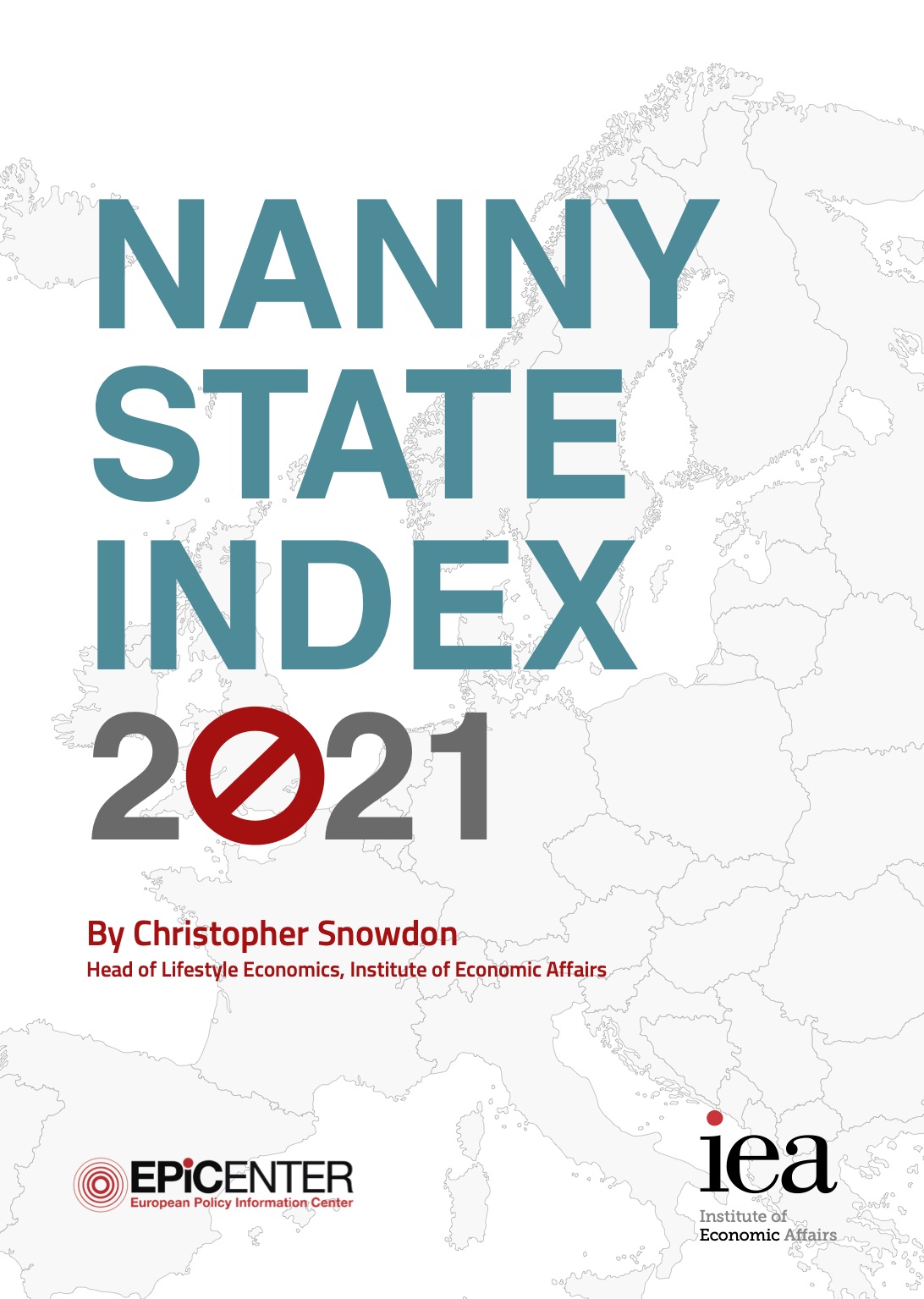

One of only two EU countries to have a state-run alcohol retail monopoly, Sweden has the highest spirits duty in the EU both in cash terms and when adjusted for income. Its rates of beer and wine duty are also in the top five.
Alcohol advertising is completely banned on television and radio. Outdoor alcohol advertising is also prohibited. Since 1991, all television advertising that is perceived to be aimed at children aged under 12 has been illegal and no advertising can be shown before, during or after programmes aimed at children.
By contrast, Sweden’s tobacco regulation is more liberal than that of many European countries. Cigarette advertising is banned outright but snus, a smokeless tobacco product, can be marketed to a limited extent and is taxed at a lower rate than cigarettes. Sweden is the only EU country in which snus can be legally bought thanks to an exemption it negotiated when joining the EU in 1995.
Sweden’s smoking ban allows for designated smoking rooms in all workplaces, bars and restaurants, although new legislation passed in December 2018 will ban smoking in many outdoor spaces. There is no ban on cigarette vending machines, no retail display ban and no plain packaging (the government has said that the latter would be unconstitutional). Sweden has by far the lowest smoking rate in Europe.
Sweden belatedly transposed the Tobacco Products Directive into law with the Act on Electronic Cigarettes and Refill Containers (2017/425), effective from 1 July 2017. This ended a period of accidental laissez-faire which began in February 2016 when the Supreme Administrative Court ruled that e-cigarettes were not medical products and therefore could not be regulated – and effectively banned – by the Medical Product Agency.
The new law bans all e-cigarette sponsorship, but permits cross-border sales and indoor vaping. Selling vape juice with a nicotine content greater than 1.7mg/ml requires a licence. In July 2018, a tax on e-cigarette fluid of two krona (€0.21) per ml came into effect. Visitors should note that the tax-free allowance for anybody entering the country is just 20ml of fluid (and 200g of heat-not-burn tobacco). Worst of all, an indoor vaping ban was passed in December 2018 which will apply to all places where smoking is banned.
Recent years have seen a minor panic about alcoholic ice cream which has a similar alcohol content as a standard beer but is not classified as an alcoholic beverage and can be sold in regular grocery stores to adults. A process is now underway to have it regulated in the same way as alcoholic drinks, possibly including a ban on alcoholic ice cream advertising on social media.
With thanks to Timbro
About
The Nanny State Index (NSI) is a league table of the worst places in Europe to eat, drink, smoke and vape. The initiative was launched in March 2016 and was a media hit right across Europe. It is masterminded and led by IEA’s Christopher Snowdon with partners from all over Europe.
Enquiries: info@epicenternetwork.eu
Download Publication

Previous version: 2019
Categories
About the Editor
Christopher Snowdon is the head of Lifestyle Economics at the Institute of Economic Affairs. His research focuses on lifestyle freedoms, prohibition and policy-based evidence. He is a regular contributor to the Spectator, Telegraph and Spiked and often appears on TV and radio discussing social and economic issues.
Snowdon’s work encompasses a diverse range of topics including ‘sin taxes’, state funding of charities, happiness economics, ‘public health’ regulation, gambling and the black market. Recent publications include ‘Drinking, Fast and Slow’, ‘The Proof of the Pudding: Denmark’s Fat Tax Fiasco’, ‘A Safer Bet’, and ‘You Had One Job’. He is also the author of ‘Killjoys’ (2017), ‘Selfishness, Greed and Capitalism’ (2015), ‘The Art of Suppression’ (2011), ‘The Spirit Level Delusion’ (2010), ‘Velvet Glove, Iron Fist’ (2009).
Sweden 2019


One of only two EU countries to have a state-run alcohol retail monopoly, Sweden has the highest spirits duty in the EU both in cash terms and when adjusted for income. Its rates of beer and wine duty are also in the top five.
Alcohol advertising is completely banned on television and radio. Outdoor alcohol advertising is also prohibited. Since 1991, all television advertising that is perceived to be aimed at children aged under 12 has been illegal and no advertising can be shown before, during or after programmes aimed at children.
By contrast, Sweden’s tobacco regulation is more liberal than that of many European countries. Cigarette advertising is banned outright but snus, a smokeless tobacco product, can be marketed to a limited extent and is taxed at a lower rate than cigarettes. Sweden is the only EU country in which snus can be legally bought thanks to an exemption it negotiated when joining the EU in 1995.
Sweden’s smoking ban allows for designated smoking rooms in all workplaces, bars and restaurants, although new legislation passed in December 2018 will ban smoking in many outdoor spaces. There is no ban on cigarette vending machines, no retail display ban and no plain packaging (the government has said that the latter would be unconstitutional). Sweden has by far the lowest smoking rate in Europe.
Sweden belatedly transposed the Tobacco Products Directive into law with the Act on Electronic Cigarettes and Refill Containers (2017/425), effective from 1 July 2017. This ended a period of accidental laissez-faire which began in February 2016 when the Supreme Administrative Court ruled that e-cigarettes were not medical products and therefore could not be regulated – and effectively banned – by the Medical Product Agency.
The new law bans all e-cigarette sponsorship, but permits cross-border sales and indoor vaping. Selling vape juice with a nicotine content greater than 1.7mg/ml requires a licence. In July 2018, a tax on e-cigarette fluid of two krona (€0.21) per ml came into effect. Visitors should note that the tax-free allowance for anybody entering the country is just 20ml of fluid (and 200g of heat-not-burn tobacco). Worst of all, an indoor vaping ban was passed in December 2018 which will apply to all places where smoking is banned.
Recent years have seen a minor panic about alcoholic ice cream which has a similar alcohol content as a standard beer but is not classified as an alcoholic beverage and can be sold in regular grocery stores to adults. A process is now underway to have it regulated in the same way as alcoholic drinks, possibly including a ban on alcoholic ice cream advertising on social media.
With thanks to Timbro

 Austria
Austria Belgium
Belgium Bulgaria
Bulgaria Croatia
Croatia Cyprus
Cyprus Czech Republic
Czech Republic Denmark
Denmark Estonia
Estonia Finland
Finland France
France Germany
Germany Greece
Greece Hungary
Hungary Ireland
Ireland Italy
Italy Latvia
Latvia Lithuania
Lithuania Luxembourg
Luxembourg Malta
Malta Netherlands
Netherlands Norway
Norway Poland
Poland Portugal
Portugal Romania
Romania Slovakia
Slovakia Slovenia
Slovenia Spain
Spain Sweden
Sweden Turkey
Turkey United Kingdom
United Kingdom
















